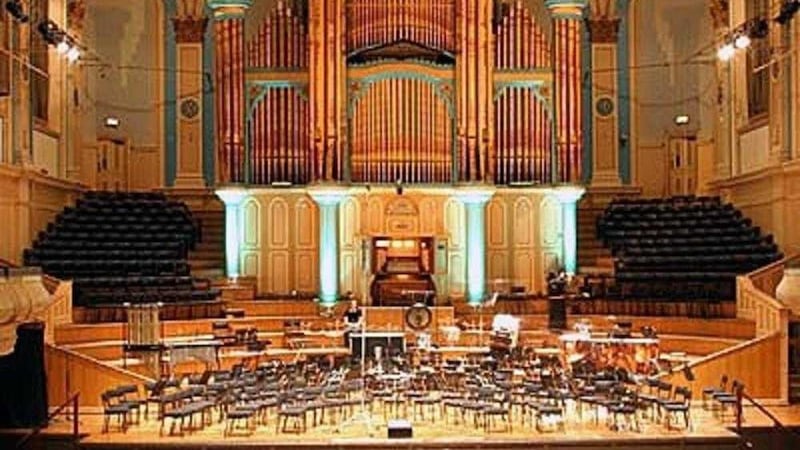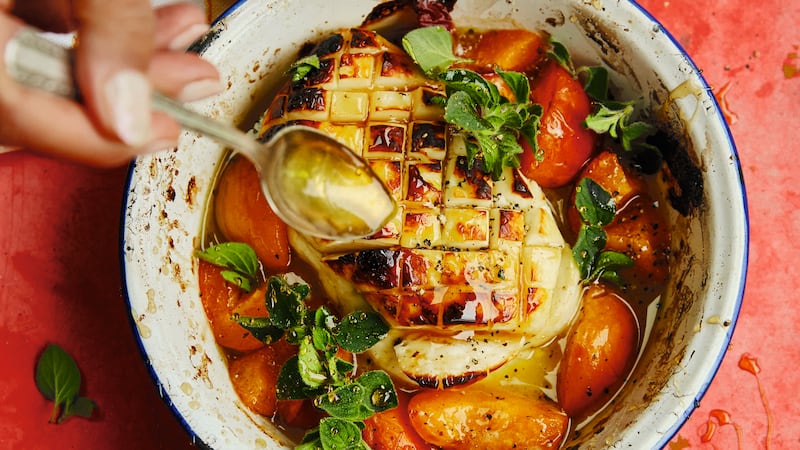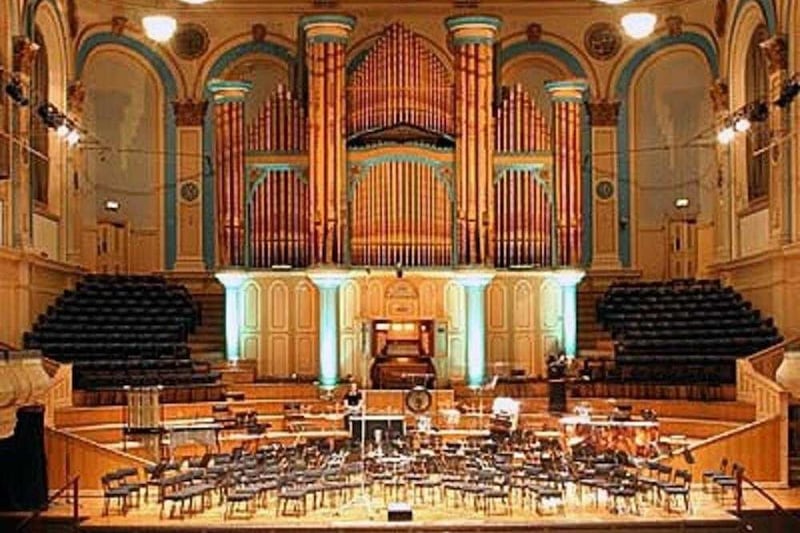THE Ulster Hall Organic Lunch concert on Friday at 1pm features the Mulholland Grand organ plus the fingers and toes of Dr Joe McKee OBE, a man steeped in music, from primary school in Glengormley where he was influenced by headmaster and organist Middleton MacDonald, through grammar school in Ballyclare to eventually becoming principal of the City of Belfast School of Music.
Although as he grew up the French horn was his chosen instrument, Joe developed a love for piano and organ, accompanying pupils at school assembly and, at the tender age of 14, playing the organ for church services – although his first public performance was as a Life Boy in a church hall in Glengormley when he sang ‘My name is Joe, the Carrier lad’.
“It was both terrifying and exhilarating!”
Then came the special day when he heard a professional organist play in a Carnmoney church.
“I’ll never forget it. I knew immediately that was the sound I wanted to make over every other. And the engineering fascinated me too, in fact I became passionate about every aspect of the organ and the range of sounds.
"If I could keep only one instrument when all others were banished it would be an organ, specifically I’d keep the old organ in St John’s College Cambridge; it has the most rewarding range of colours.”
Joe McKee has played numerous organs including in the ancient Church of St Nicholas in Carrickfergus where as a young man he delighted in making some pocket money playing at "loads" of weddings. When Head of Music at Royal School Armagh he was assistant organist in St Patrick’s Church of Ireland Cathedral and during his time there he was invited to sing at the funeral of Cardinal William Conway, Archbishop of Armagh, Primate of All Ireland and again in 1979 when Monsignor Tomas O Fiaich returned from Rome as cardinal and with his red hat.
Seven years as a producer – and still a presenter – with the BBC music department, director of music at Methodist College and until recently on the board of the Grand Opera House. Apart from that and more, for 10 years Joe was music critic for this newspaper in the 90s.
He’s currently a tutor for the Down & Dromore and Connor Organ Scholarship Scheme and organist and choral director at St Columba's Parish Church in Knock, east Belfast and regularly adjudicate at music festivals and feiseanna across Ireland.
Other passions are theatre and his love of cooking but it’s the organ that will have his full attention on Friday when the Ulster Hall will resound to his touch as he plays his favourite pieces. Each has been chosen to compliment the Mulholland, especially the Elgar, tailor made to show off the symphonic organ which Mulholland hoped would be a real one-man-band.
This one man will delight in bringing the rainbow of colours to his audience, from Bach to Elgar, Procul Harem to John Philip Sousa. It will be a joy to sit back, eyes closed and allow those colours to swirl round and fill the air.
I often wonder how on Earth anyone masters the organ, not least the complexities of the Mulholland, an instrument gifted to the people of Belfast by former Lord Mayor Andrew Mulholland in 1860s; his great great grandson, Henry Mulholland, 4th Baron Dunleath, oversaw the restoration in the late 1970s.
Audiences will have an opportunity to meet Joe after the concert to talk about the programme and ask questions about the Mulholland Grand Organ. Tickets cost £5 and are available by calling 028 9033 4455 or from the Ulster Hall box office on Friday.
IT’S GOOD TO TALK
EVERYONE is into talking these days and thank goodness for it. Who said jaw jaw not war war? So true in every way – at home, in the workplace and in the community at large. Especially in the community at large.
The opening of a Death Cafe at the Pantry Crescent Arts Centre in Belfast on Sunday April 10 broke a lot of taboos – an international idea to allow people to talk about this subject and hopefully come to terms with their fears and doubts.
Organisers, local writers Lucy Beevor and Therese Kieran, were pleased that 50 people came to debate a variety of topics ranging from what they deemed a ‘good’ death to reflecting on life as it is now whilst a number of personal stories opened up the discussion.
There are more such events in the future and I will be telling you where and when once dates are arranged.
KEEP TALKING
MARIA McManus has also established a talking shop, this time in the Oak Lounge of the Errigle Inn, Belfast.
“A ‘seisún' with a difference,” says the writer, “No music, no television, no singing, just sharing stories, yarns and poems in the oral tradition of Ireland.”
In a setting of oak panels, Lloyd Loom furniture and stained glass, the haunt of the late James Ellis and George Best’s father Dickie, this Ormeau Road bar is no stranger to actors and writers and now storytellers.
“You never know where the stories will take us,” Maria explains, “We’ve spent time talking about rogues and blackguards, skullduggery and fly-by-nights. We’ve talked about travel, war and rebellion. It can go anywhere. The stories often evoke old Belfast, things I never knew about, such as drinking dens, the emergency plans, prison ships, workhouses and local characters.
"People can relax and eat some lunch, and either listen or chip in.”
The Talk for Talk’s Sake Sessions are on Thursday afternoons, from 2pm to 3.30pm. Everyone is welcome.
By the way, the Jaw Jaw quotation came from Sir Winston Churchill during a 1954 luncheon speech in the White House.





